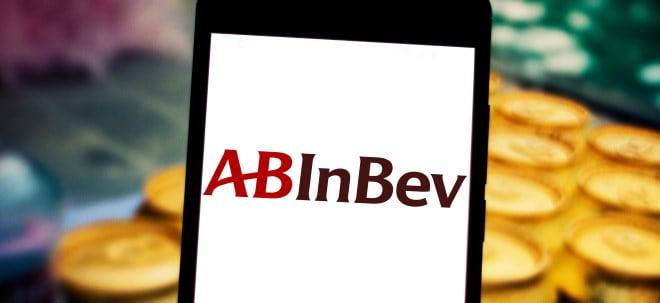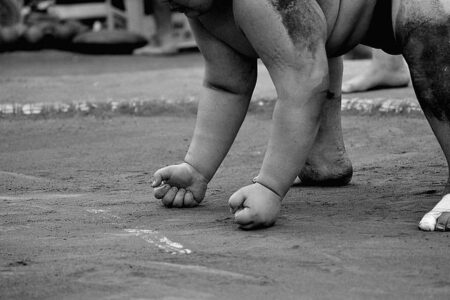Shares of AB InBev experienced a notable decline following the company’s report of weaker-than-expected sales in key markets China and Brazil, Reuters reports. The brewing giant’s latest financial results highlight mounting challenges in two of its largest emerging markets, raising concerns among investors about its growth prospects and overall market performance. This downturn reflects broader economic pressures and shifting consumer behaviors that are impacting the global beverage industry.
AB InBev Shares Plummet Amid Declining Sales in Key Markets China and Brazil
AB InBev faced a sharp decline in investor confidence after reporting significant drops in sales within two of its largest and most vital markets, China and Brazil. Industry analysts pointed to several contributing factors including changing consumer preferences, heightened competition, and ongoing economic challenges. In particular, China’s stringent regulations and slow post-pandemic recovery have dampened demand, while Brazil’s volatile currency and inflationary pressures further strained profitability.
The company’s recent financial results revealed alarming trends:
- China: Sales volumes declined by over 15% compared to the previous quarter.
- Brazil: Revenue slumped 12%, marking the third consecutive quarterly drop.
- Stock Performance: Shares dropped nearly 8% in after-hours trading on the day of the announcement.
| Market | Q1 Sales Decline | Contributing Factors |
|---|---|---|
| China | 15% | Regulatory hurdles, weaker consumer demand |
| Brazil | 12% | Inflation, currency volatility |
Regional Challenges and Consumer Trends Weigh on AB InBev Revenue Growth
AB InBev’s growth trajectory has encountered significant headwinds in key markets, particularly China and Brazil, where shifting consumer preferences and macroeconomic pressures continue to weigh heavily on revenue. In China, the expanding popularity of craft beers and local brews is eroding market share for international brands. Meanwhile, inflationary pressures and fluctuating currency rates have dampened consumer spending power, forcing AB InBev to adjust pricing strategies amid increasing competition. These dynamics have led to a slowdown in volume growth, challenging the company’s ability to maintain its previously robust sales momentum.
In Brazil, economic uncertainty combined with regulatory challenges and higher taxes on alcoholic beverages have further complicated the sales environment. Consumers are becoming more health-conscious and price-sensitive, turning to low-alcohol and non-alcoholic alternatives, prompting AB InBev to diversify its portfolio. The company’s strategic responses include:
- Expanding craft and premium product lines to capture niche markets
- Increasing focus on sustainability to align with evolving consumer values
- Optimizing supply chain efficiencies to offset cost pressures
| Region | Primary Challenges | AB InBev Response |
|---|---|---|
| China | Market share loss, inflation, currency volatility | Product innovation, pricing adjustments |
| Brazil | Regulatory taxes, shifting tastes, economic concerns | Portfolio diversification, supply chain optimization |
Strategic Recommendations for AB InBev to Revitalize Market Presence and Investor Confidence
To halt the recent downturn in key markets like China and Brazil, AB InBev must prioritize localization of their product offerings by tailoring brands and flavors more closely to regional consumer preferences. Innovation in packaging and sustainable practices can also resonate with increasingly eco-conscious buyers. Additionally, strengthening distribution networks-especially in emerging urban areas-will enhance market penetration and accessibility. A sharper focus on digital marketing and engagement through social media platforms is essential to reconnect with younger demographics and shift brand perception from traditional to contemporary.
Financially, the company should consider revisiting its portfolio strategy to optimize product mix and divest underperforming assets. Transparent communication with investors about turnaround plans and realistic projections can rebuild confidence. Below is a simplified overview of immediate actions and their expected impacts:
| Recommendation | Target Area | Expected Outcome |
|---|---|---|
| Flavor Customization | Product Development | Boost local market appeal |
| Sustainability Initiatives | Brand Image | Enhance consumer loyalty |
| Expand Urban Distribution | Sales Channels | Increase market coverage |
| Investor Communication | Financial Strategy | Restore market confidence |
The Conclusion
As AB InBev grapples with declining sales in key markets such as China and Brazil, the sharp drop in its share price reflects investor concerns about the brewer’s near-term growth prospects. Market watchers will be closely monitoring the company’s upcoming earnings reports and strategic responses as it seeks to stabilize performance amid challenging economic conditions in these regions.




